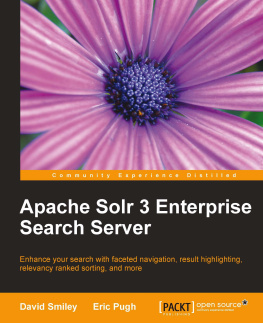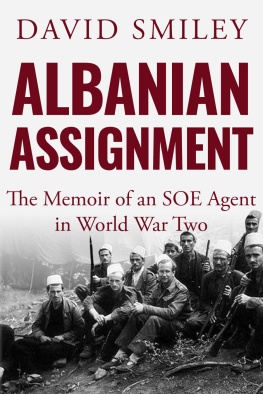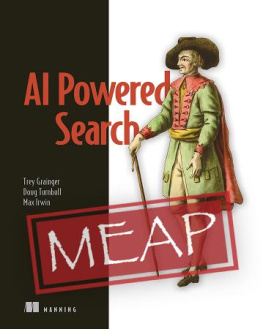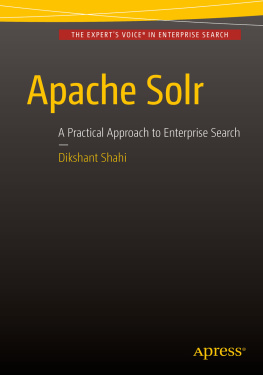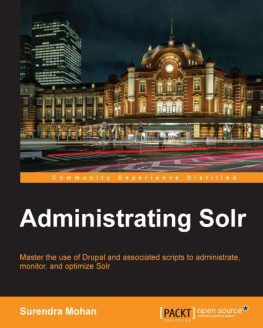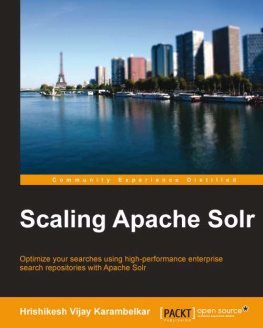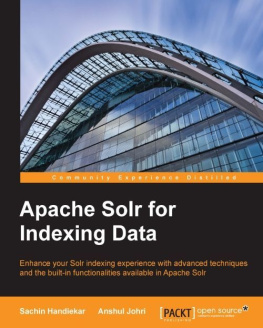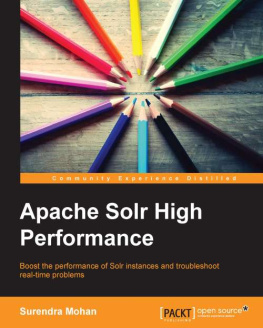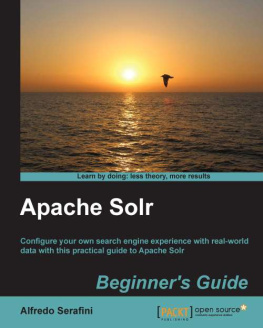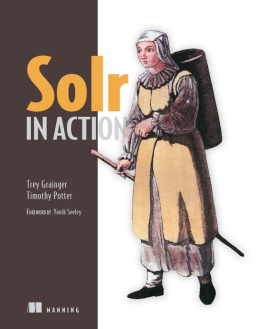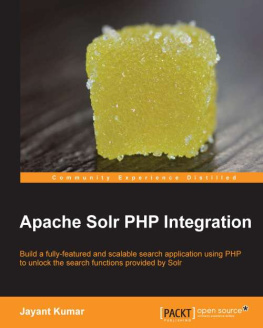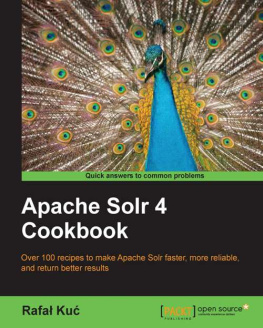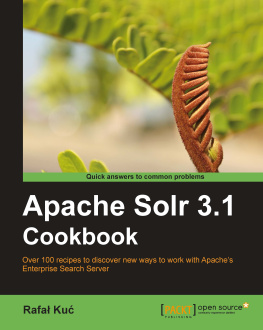David first used Lucene in 2000 and was immediately struck by its speed and novelty. Years later he had the opportunity to work with Compass, a Lucene based library. In 2008, David built an enterprise people and project search service with Solr, with a focus on search relevancy tuning. David began to learn everything there is to know about Solr, culminating with the publishing of Solr 1.4 Enterprise Search Server in 2009the first book on Solr. He has since developed and taught a two-day Solr course for MITRE and he regularly offers technical advice to MITRE and its customers on the use of Solr. David also has experience using Endeca's competing product, which has broadened his experience in the search field.
On a technical level, David has solved challenging problems with Lucene and Solr including geospatial search, wildcard ngram query parsing, searching multiple multi-valued fields at coordinated positions, and part-of-speech search using Lucene payloads. In the area of geospatial search, David open sourced his geohash prefix/grid based work to the Solr community tracked as SOLR-2155. This work has led to presentations at two conferences. Presently, David is collaborating with other Lucene and Solr committers on geospatial search.
Acknowledgement
Most, if not all authors seem to dedicate their book to someone. As simply a reader of books I have thought of this seeming prerequisite as customary tradition. That was my feeling before I embarked on writing about Solr, a project that has sapped my previously "free" time on nights and weekends for a year. I chose this sacrifice and want no pity for what was my decision, but my wife, family and friends did not choose it. I am married to my lovely wife Sylvie who has easily sacrificed as much as I have to work on this project. She has suffered through the first edition with an absentee husband while bearing our first childCamille. The second edition was a similar circumstance with the birth of my second daughterAdeline. I officially dedicate this book to my wife Sylvie and my daughters Camille and Adeline, who I both lovingly adore. I also pledge to read book dedications with new-found first-hand experience at what the dedication represents.
I would also like to thank others who helped bring this book to fruition. Namely, if it were not for Doug Cutting creating Lucene with an open source license, there would be no Solr. Furthermore, CNET's decision to open source what was an in-house project, Solr itself, in 2006, deserves praise. Many corporations do not understand that open source isn't just "free code" you get for free that others write: it is an opportunity to let your code flourish in the outside instead of it withering inside. Last, but not the least, this book would not have been completed in a reasonable time were it not for the assistance of my contributing author, Eric Pugh. His own perspectives and experiences have complemented mine so well that I am absolutely certain the quality of this book is much better than what I could have done alone.
Thank you all.
David Smiley
Eric Pugh has been fascinated by the "craft" of software development, and has been heavily involved in the open source world as a developer, committer, and user for the past five years. He is an emeritus member of the Apache Software Foundation and lately has been mulling over how we solve the problem of finding answers in datasets when we don't know the questions ahead of time to ask.
In biotech, financial services, and defense IT, he has helped European and American companies develop coherent strategies for embracing open source search software. As a speaker, he has advocated the advantages of Agile practices with a focus on testing in search engine implementation.
Eric became involved with Solr when he submitted the patch SOLR-284 for Parsing Rich Document types such as PDF and MS Office formats that became the single most popular patch as measured by votes! The patch was subsequently cleaned up and enhanced by three other individuals, demonstrating the power of the open source model to build great code collaboratively. SOLR-284 was eventually refactored into Solr Cell as part of Solr version 1.4.
He blogs at http://www.opensourceconnections.com/
Acknowledgement
When the topic of producing an update of this book for Solr 3 first came up, I thought it would be a matter of weeks to complete it. However, when David Smiley and I sat down to scope out what to change about the book, it was immediately apparent that we didn't want to just write an update for the latest Solr, we wanted to write a complete second edition of the book. We added a chapter, moved around content, rewrote whole sections of the book. David put in many more long nights than I over the past 9 months writing what I feel justifiable in calling the Second Edition of our book. So I must thank his wife Sylvie for being so supportive of him!
I also want to thank again Erik Hatcher for his continuing support and mentorship. Without his encouragement I wouldn't have spoken at Euro Lucene, or become involved in the Blacklight community.
I also want to thank all of my colleagues at OpenSource Connections. We've come a long way as a company in the last 18 months, and I look forward to the next 18 months. Our Friday afternoon hack sessions re-invigorate me every week!

